Research Area
In the field of Design and Manufacturing, we conducted research in various fields for the design and manufacturing of mechanical systems. In the Design process, we have not only studied the classical optimal/robust mechanical design theory, but also the CAD/CAM application, biomechanics and HCI, and future-oriented mechanical systems combining Internet-based, tangible user interface and new media technology including service robots. In Manufacturing, we develop advanced manufacturing systems that incorporate a variety of micro/nano processing, molding and manufacturing theories. In particular, the research and design of nano-to-macro-size structures/actuators/robots using composite materials and smart materials are conducted and applied to advanced energy/environment/titration technologies such as fuel cells.
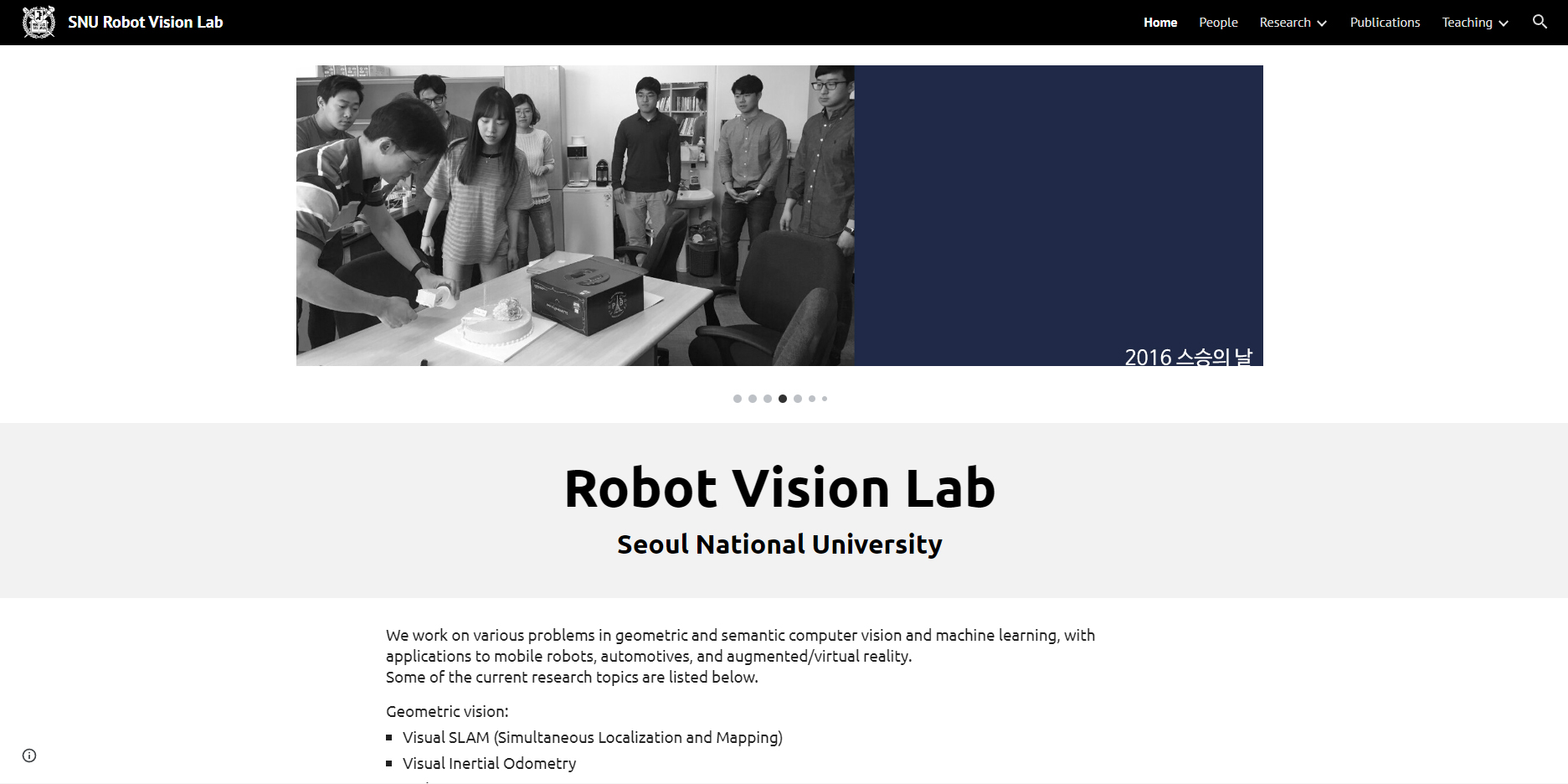
We conducts various research on 3D modeling, object recognition and tracking, real-time 3D sensing, and sensor fusion to apply computer vision and machine learning technologies to robots and autonomous devices, with a focus on Visual SLAM, large-scale 3D modeling, and visual tracking.

Our group focuses on perceptual simultaneous localization and mapping (SLAM). Main research interest and detailed robotics topics include perception-based environment mapping, intelligent sensor fusion, decision making and control of the robotic agents, robotic operation, and navigation in GPS-denied environments (e.g., underwater, urban, and indoor environments).

Our research goal is to analyze the mechanisms and dynamics of biological systems and transform them into robotic/mechatronic systems for human life. We are interested in bio-inspired design of soft robots and development of novel manufacturing methods for soft smart structures. We envisions our research being a foundation to establish a design and manufacturing methodology for soft robots by implementing biological sensing and actuation mechanisms.

Our research covers a broad range of nanoscale energy and mass transfer mechanics and their applications. Based on innovative manufacturing techniques and novel materials, scalable high-efficiency energy devices such as thin-film solar cells and solid-state rechargeable battery devices are developed.
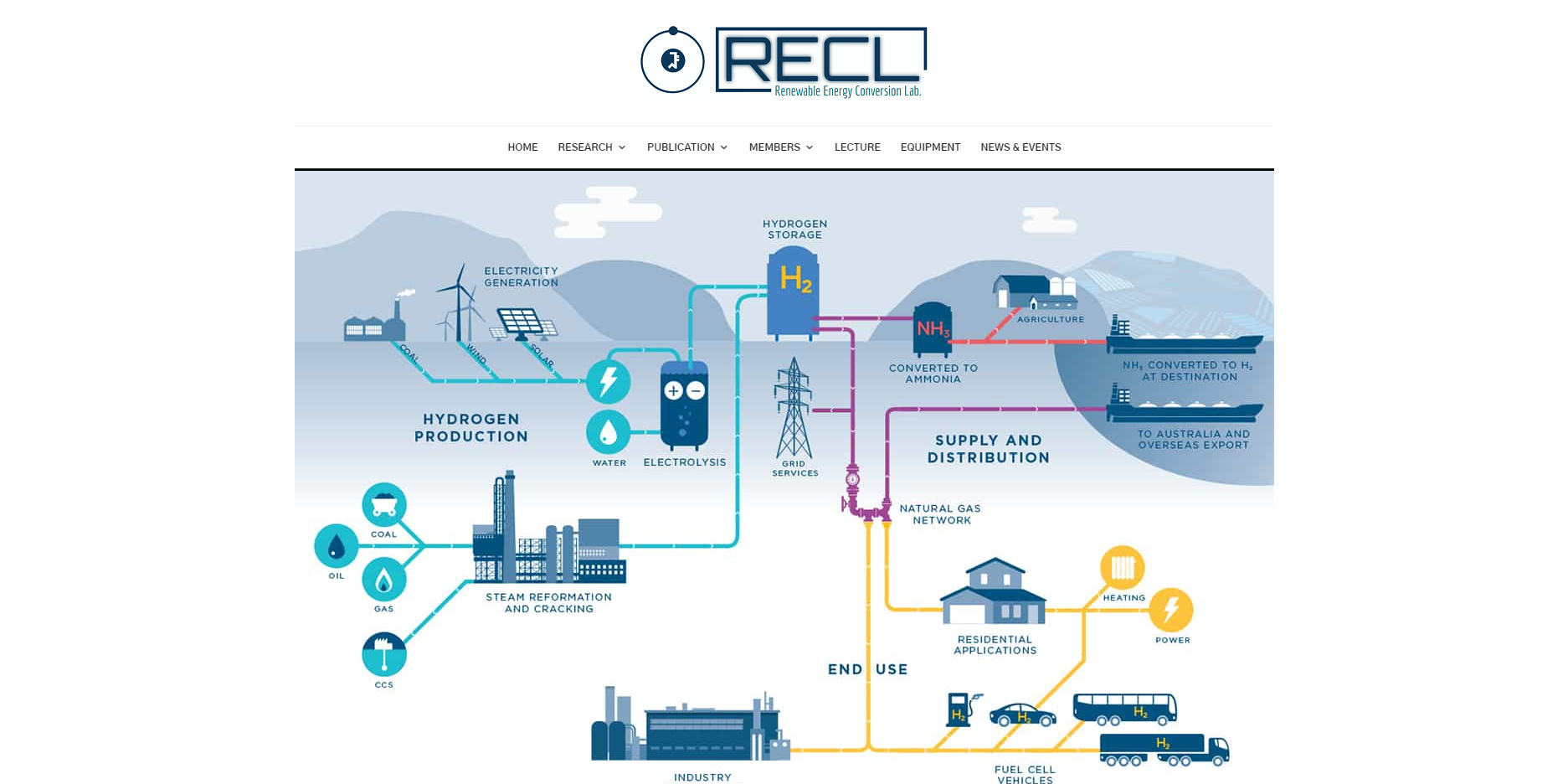
The renewable energy conversion laboratory is a team working on two specific kinds of research; fuel cells and data-driven programming. We are designing various types of fuel cells such as SOFCs, PEMFCs by analyzing and testing the performance of the fuel cell. Based on the experimental data, we are progressing the research of fuel cell system and hybrid vehicle modeling, adjusting to the application of many industries by utilizing AI technology and data-driven programming.
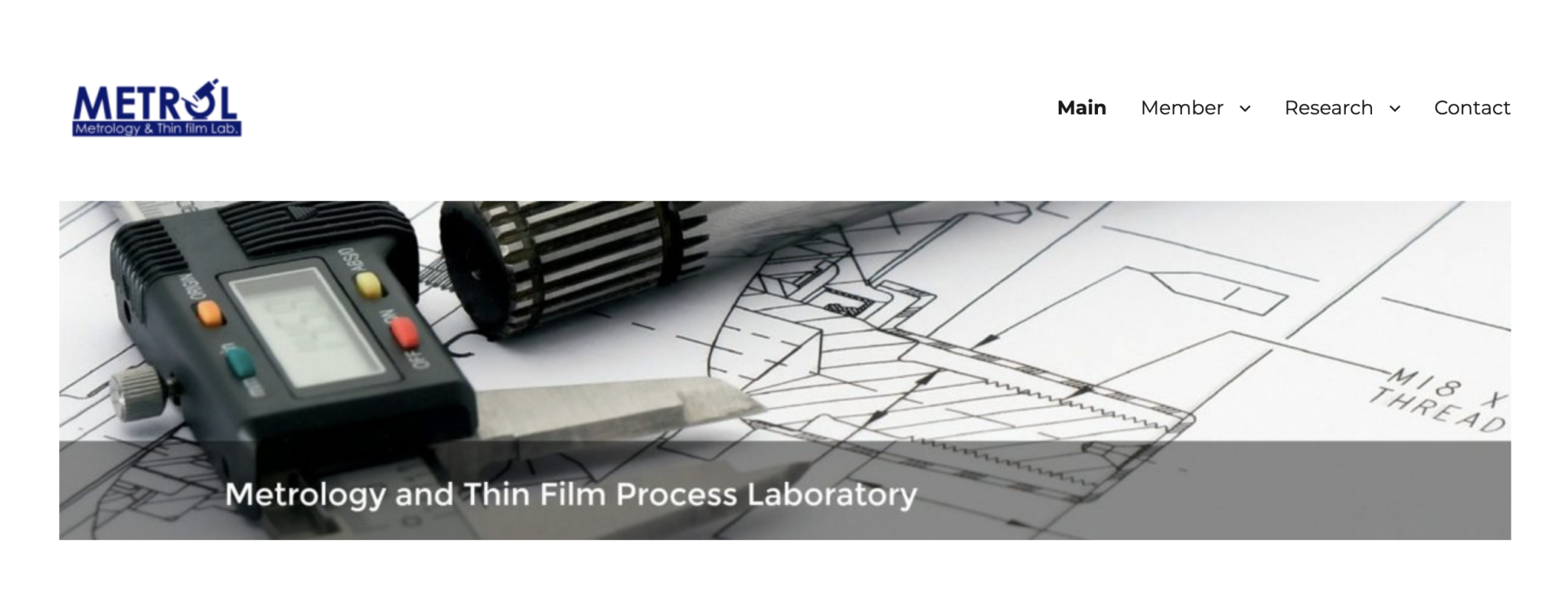
Studies in this area are the development of new metrology system to enhance reliability and precision of manufacturing process. In research and development of precise metrology system, topics include mechanical engineering, optics, signal processing and data learning. The target of measurement system varies from nanometer to meter scale.

Our primary research interest lies in the development of rapid, flexible, and scalable additive micro/nano manufacturing technologies to overcome critical technological barriers of the current manufacturing and to explore new engineering applications by studying fundamental physics and mechanics of soft active materials.

Healthcare Robotics Lab develops various actuators, sensors, and mechanisms that can be applicable to the medical field. The lab currently focuses on surgical robotic systems that can safely and accurately interact with a human body, haptic devices that deliver touch sensation during teleoperated medical procedures, and implantable devices that assist, treat, or monitor organs.

We open the classes such as materials and manufacturing processes, intelligent materials and design (graduate school), design for manufacturing (design for manufacturing, graduate school), and smart manufacturing and application (graduate school) by reflecting the concepts related to design and production in education.
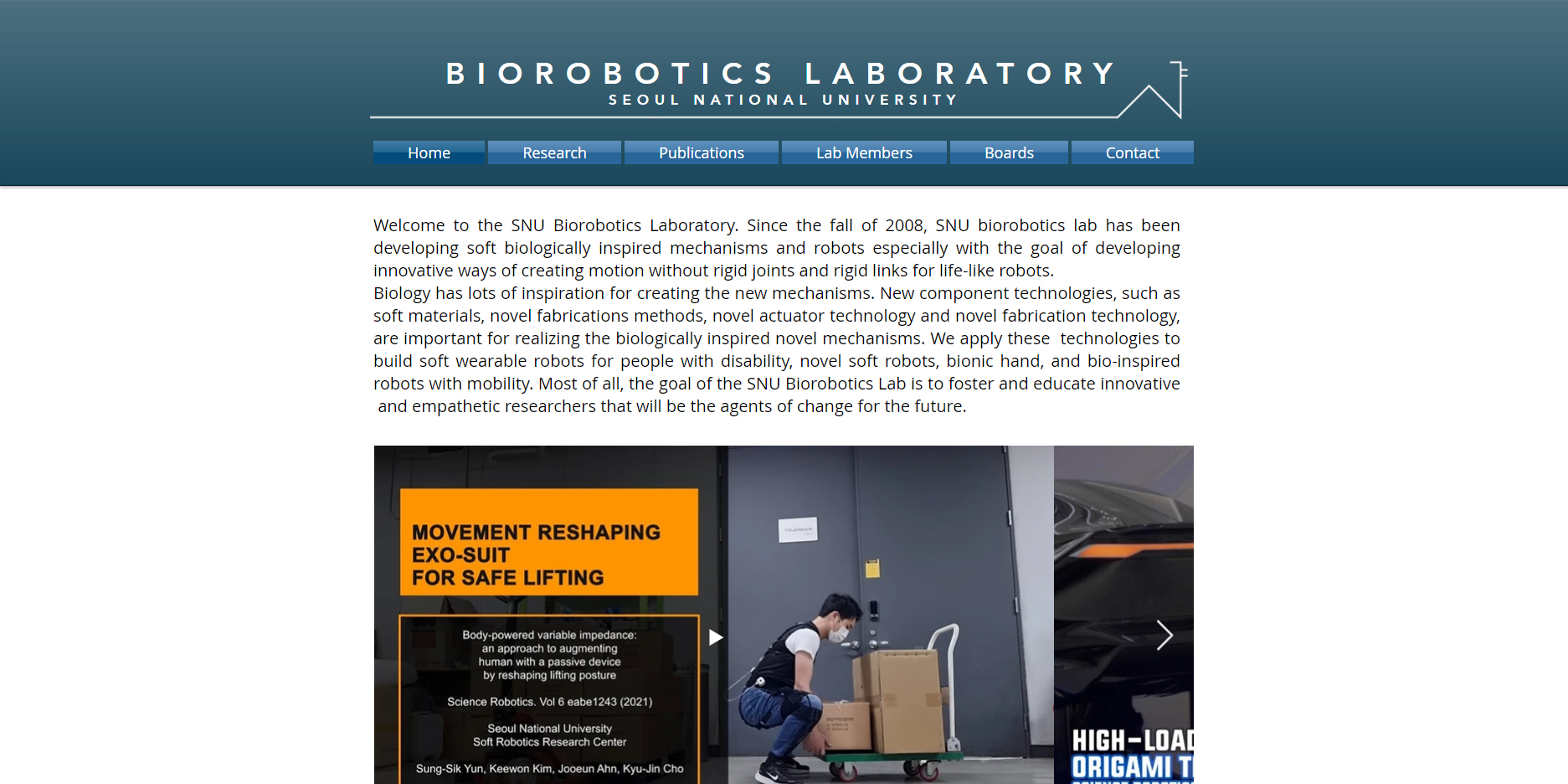
We will open lectures such as dynamics, creative engineering design, and robot technology commercialization(for graduate) so that we can cultivate the foundation of engineering and build various experiences ranging from robot design and production, problem solving and start-up.
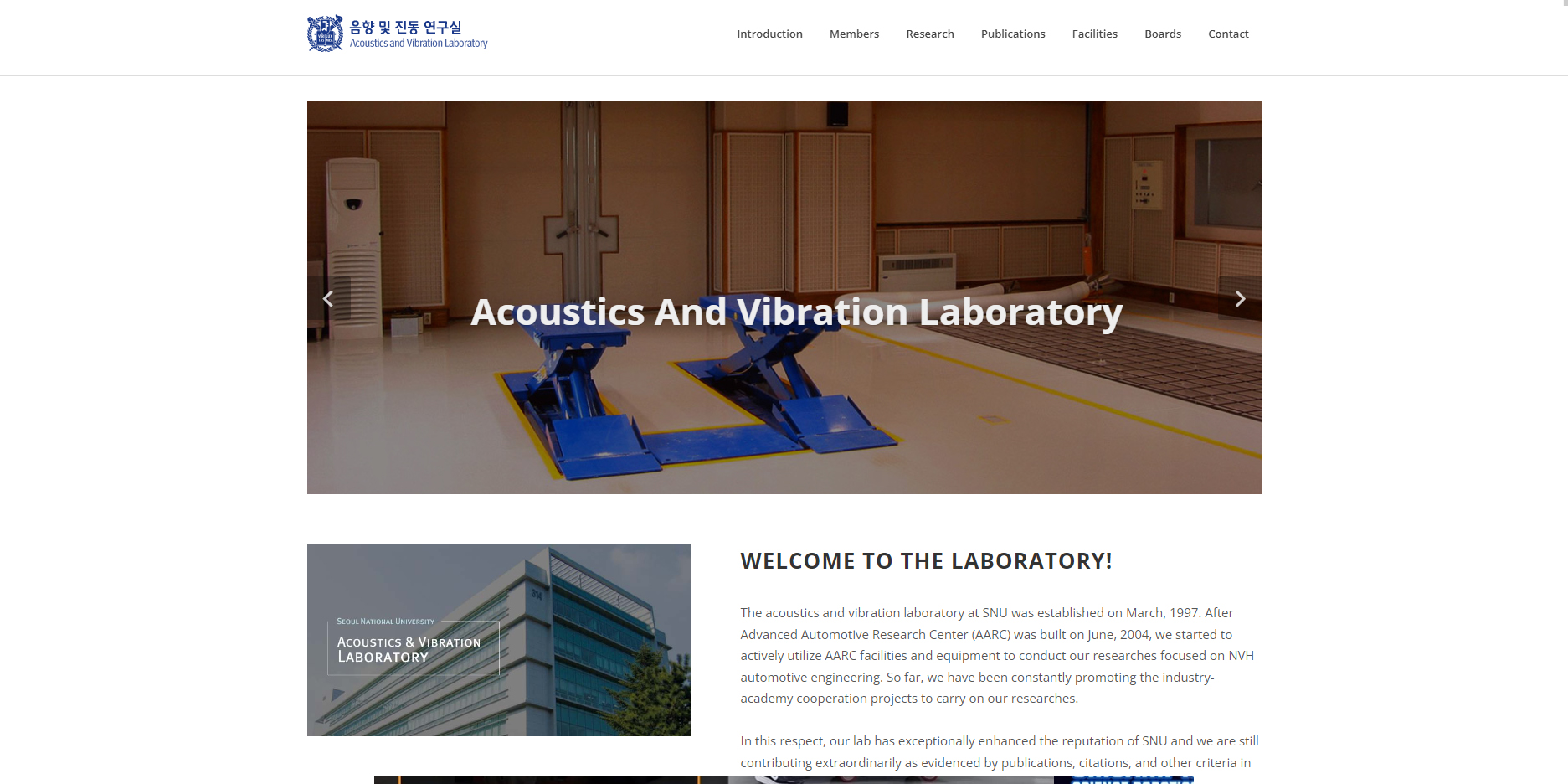
Acoustics and vibration laboratory is conducting research related to vibration and acoustic engineering. By reflecting these concepts in education, classes such as dynamics, mechanical vibration, introduction to sound system engineering, and engineering acoustics (graduate school) are opened.
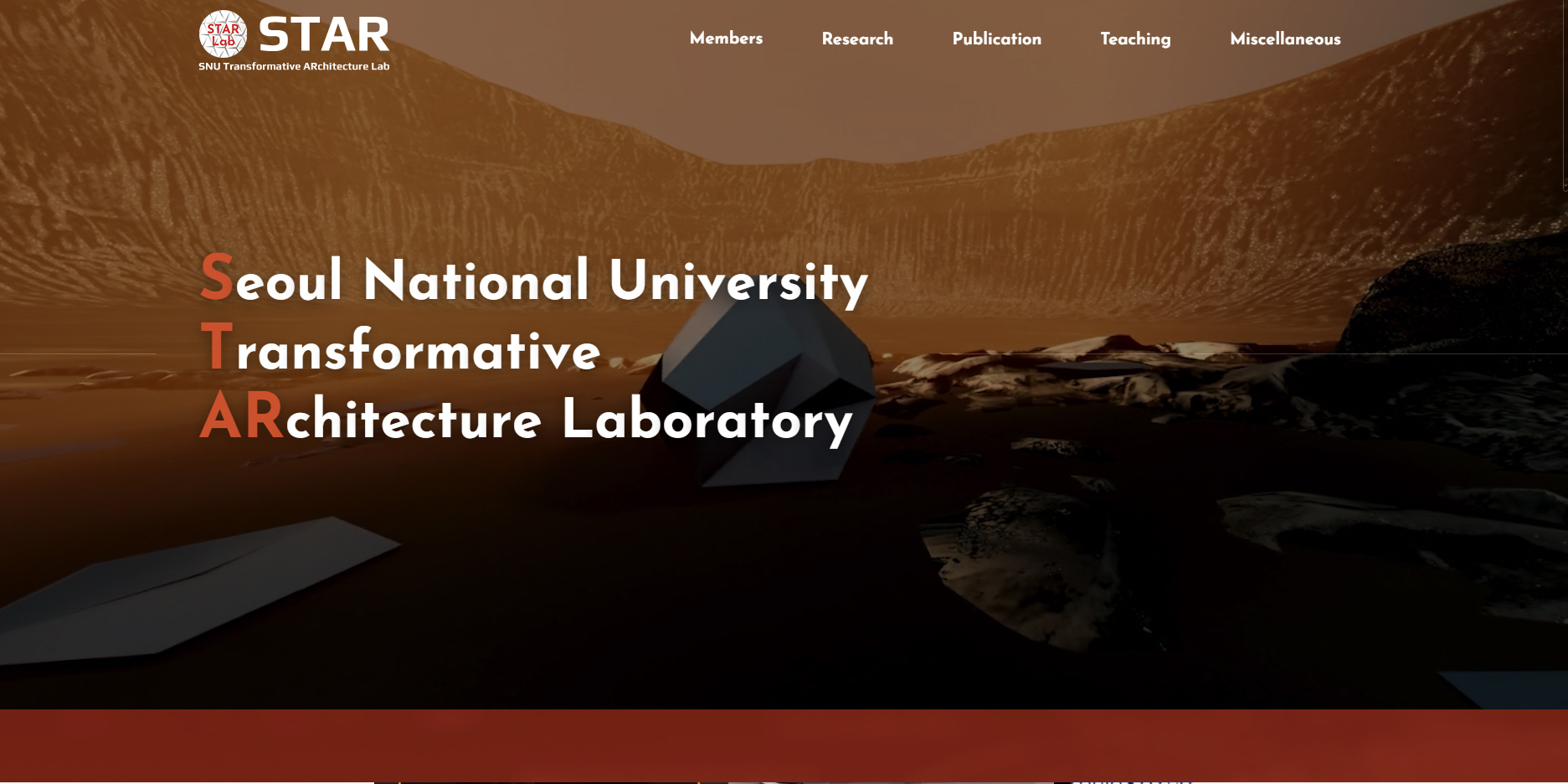
Our research in the Transformative Architecture Laboratory is directed towards designing and developing advanced architected systems for various engineering applications, ranging from aerospace structures, biomedical devices, robotics, to energy and environments. Such advanced architecture will allow us to manipulate their mechanical properties and dynamic responses at will, which will lead to a paradigm shift in material and structural design.

